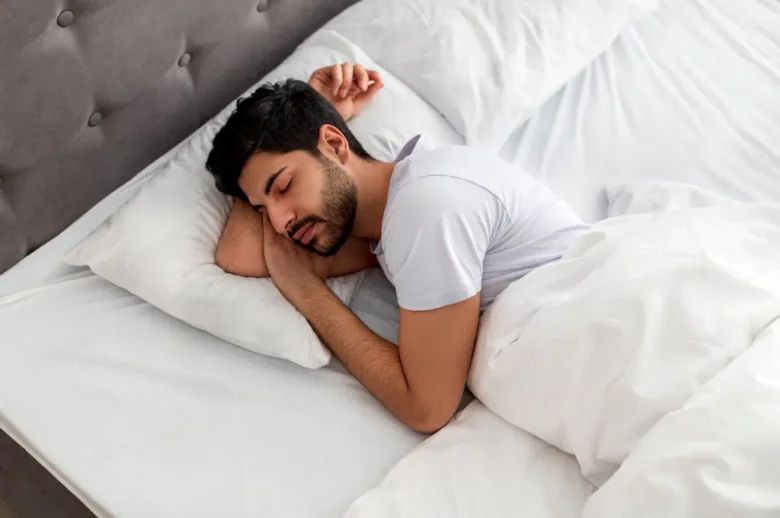When people think of a healthy lifestyle, they often think of healthy eating, regular exercise, and stress management. While these habits are important, sleep is often overlooked. Sufficient, quality sleep is essential for physical health, mental focus, and social well-being. In today’s busy world, many people feel forced to sacrifice rest for work, social obligations, or screen time. This article explores why sleep is so important, how it impacts every aspect of life, and how you can sleep better for a healthy and restful life.
Why Getting Enough Sleep Is Essential for Your Health
Sleep does more for your body than just rest. Your body performs important tasks while you sleep, such as repairing muscles, regulating hormones, and improving your memory. Adequate sleep strengthens your immune system, reduces your risk of chronic conditions like diabetes and heart disease, and gives you more energy. Without sufficient rest, your body can’t function optimally, leaving you feeling tired, irritable, and less productive.
Sleep and a Healthy Mind
Good sleep is crucial for your brain. While you sleep, your brain processes knowledge, eliminates waste, and strengthens memory. Insufficient sleep can lead to brain fog, poor concentration, and poor decision-making.
Besides its impact on mental health, sleep also directly affects emotional well-being. People who don’t get enough sleep are more prone to anxiety, sadness, and mood swings. Getting enough quality sleep every night can improve your stamina, emotional balance, and mental focus.
The Connection Between Sleep and Task Completion
A healthy lifestyle often means excelling at work or school while also leaving time for personal development. Adequate sleep is a key factor in improving productivity. A well-rested brain is more creative, more focused, and able to solve problems quickly.
On the other hand, insufficient sleep can impair concentration, lead to more mistakes, and slow reaction times. Studies have shown that insufficient sleep can be as detrimental to productivity as alcohol consumption. Making sleep a priority is a great way to achieve more results with less effort.
The Connection Between Sleep, Fitness, and Weight Loss
Getting enough sleep is essential for staying healthy. Your muscles repair and grow stronger during sleep. When you enter deep sleep, your body produces growth hormone, which is essential for healing and recovery. This means that if you don’t get enough rest, your exercise-related results can stall.
Weight loss can also be affected by sleep. When you don’t get enough sleep, hormones that regulate hunger, such as ghrelin and leptin, are disrupted. This makes you feel hungrier and less full after eating. This often leads to overeating and cravings for unhealthy foods. Getting 7-9 hours of good sleep can support both your exercise goals and a healthy diet.
How to Sleep and Reduce Stress
Stress is a factor that can hinder a healthy lifestyle. Getting enough sleep is one of the best ways to manage stress. During sleep, your body reduces the stress hormone cortisol, allowing you to wake up feeling rested and refreshed.
Insufficient sleep can lead to elevated cortisol levels, which can lead to chronic stress, anxiety, and even health problems like high blood pressure. Prioritizing sleep gives your body and mind the chance to recover, allowing you to better cope with the challenges of daily life.
How to Sleep Better
You’re not alone in having trouble falling asleep or staying asleep. More than a million people experience sleep problems. The good news is that small lifestyle changes can have big results. Here are some proven ways:
Keep a consistent bedtime
Go to bed and wake up at the same time every day. This helps balance your body’s internal clock and promotes better sleep.
Develop a calming bedtime routine
Do something relaxing before bed, such as reading, light stretching, or meditating. Avoid stimulating activities, such as checking email or browsing social media.
Avoid screen time before bed
Melatonin is a hormone that regulates sleep. Blue light from phones, tablets, and computers can prevent your body from sleeping. Try to avoid screens for at least an hour before bed.
Improve your sleep environment
Make sure your bedroom is cool, dark, and quiet. Invest in comfortable pillows. Small changes, like dark curtains or a white noise machine, can help you sleep better.
FAQs
1. How many hours of sleep do adults need per night?
For optimal health and performance, most people need 7 to 9 hours of sleep per night. Depending on individual needs and genetics, some people need more or less sleep.
2. Can I catch up on sleep on weekends?
Extra rest can compensate for sleep loss, but it won’t completely eliminate regular sleep deprivation. The best approach is to try to get enough sleep every night.
3. What are some signs that you’re not getting enough sleep?
Common symptoms include waking up during the night, feeling tired after a full night’s sleep, difficulty concentrating, and irritability at night.
4. Does exercise help you sleep?
Yes, daily exercise can help you fall asleep by lowering your stress levels and synchronizing your body clock.
5. When should I see a doctor if I can’t sleep?
If you have trouble sleeping, snore loudly, or feel sleepy during the day, you should consult a doctor. This could mean that you:
Summary
Sleep is more than just a way to rest; it’s an essential part of a healthy, restful life. It impacts your mental health, physical well-being, work productivity, and emotional well-being. When you prioritize quality sleep during these four hours, your body gets the chance to rest, recover, and perform at its best. “Midday” is universally praised, so rest may be one of the most important things you can do to live a good life.




